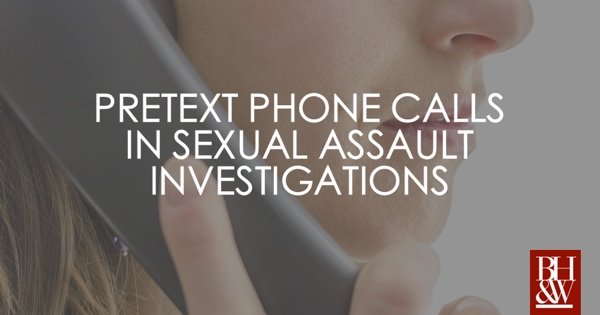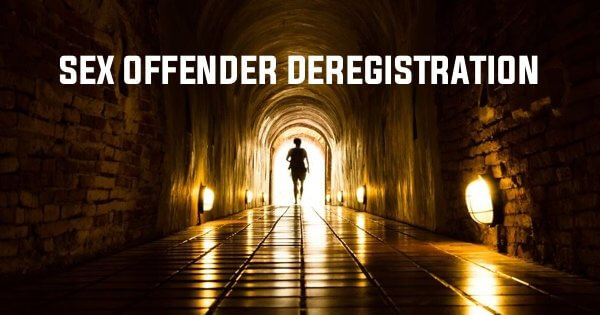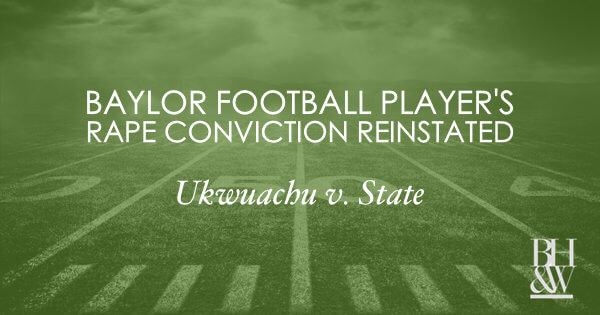Hearsay Statements Admitted in Child Sexual Assault Trial. Affirmed on Appeal by Fort Worth Court.
 Gonzales v. State – 2nd Court of Appeals (Fort Worth) 2015
Gonzales v. State – 2nd Court of Appeals (Fort Worth) 2015
Pablo Gonzales, Jr. was convicted on one count of aggravated sexual assault of a child and three counts of indecency with a child. He was sentenced to life in prison by the jury for the sexual assault case and twenty years imprisonment in each of the indecency cases.
The defendant lived in a house where drug use was rampant and people would come in, often leaving their children for him to watch. One of the witnesses against him, given the pseudonym T.P., was the mother of two of the girls that claimed to be sexually abused by defendant. Generally, hearsay testimony, testimony from one person about what another person says, cannot be admitted into evidence against a defendant. Here, the trial court applied an exception to the hearsay rule for an “outcry witness.” An outcry witness is the first person a child tells about abuse that the child received and this testimony by the outcry witness can be admitted.
The defendant in this case argued that the outcry witness testimony should not be allowed into court because T.P. admitted that her memory was fuzzy as a result of her drug use. Defendant also argued that T.P.’s testimony satisfied few, if any, of the nonexclusive factors the court considers in determining the reliability of an outcry.
When Can an Outcry Witness Statement by Admitted Over Defense Objection?
Article 38.072 of the code of criminal procedure provides a mechanism that requires the trial court to determine on a case-by-case basis if outcry witness testimony reaches the level of reliability required to be admissible as an exception to the hearsay rule.
Indicia of reliability that the trial court may consider [under article 38.072] include (1) whether the child victim testifies at trial and admits making the out-of-court statement, (2) whether the child understands the need to tell the truth and has the ability to observe, recollect, and narrate, (3) whether other evidence corroborates the statement, (4) whether the child made the statement spontaneously in his own terminology or whether evidence exists of prior prompting or manipulation by adults, (5) whether the child’s statement is clear and unambiguous and rises to the needed level of certainty, (6) whether the statement is consistent with other evidence, (7) whether the statement describes an event that a child of the victim’s age could not be expected to fabricate, (8) whether the child behaves abnormally after the contact, (9) whether the child has a motive to fabricate the statement, (10) whether the child expects punishment because of reporting the conduct, and (11) whether the accused had the opportunity to commit the offense.
The defendant claimed that the outcry lacked reliability, specifically because of T.P.’s drug use and generally because it was short, lacked detail, and was uncorroborated. The 2nd Court of Appeals (Fort Worth) agreed that the statement was short, but pointed out that it was also very clear, specific, and unequivocal. A trial court’s decision to admit evidence will not be disturbed on appeal absent a clear abuse of discretion. A trial court has only abused its discretion if its decision falls outside the zone of reasonable disagreement.
The 2nd Court of Appeals went on explain that even if they concluded that the trial court abused its discretion in admitting the testimony, such error would not rise to the level of constitutional error and should only be reversed if the error affected the Defendant’s substantial rights. The Court noted the victim testified at trial, and her testimony both corroborated T.P.’s testimony regarding the outcry and provided greater detail. For this reason, the Court held that even if the trial court abused its discretion by admitting the outcry witness testimony, the error would be harmless.
Even if someone admits to their memory not being completely accurate due to prominent drug use, their outcry testimony can still be brought into court if the person who made the statements to them originally, corroborates them. This may make it extremely hard to overturn a conviction with the Court of Appeals because even if outcry testimony may be weak or lacks reliability, the Court will likely not overrule the case so long as others corroborate the testimony. This may also make it extremely hard to keep out any outcry statements.










